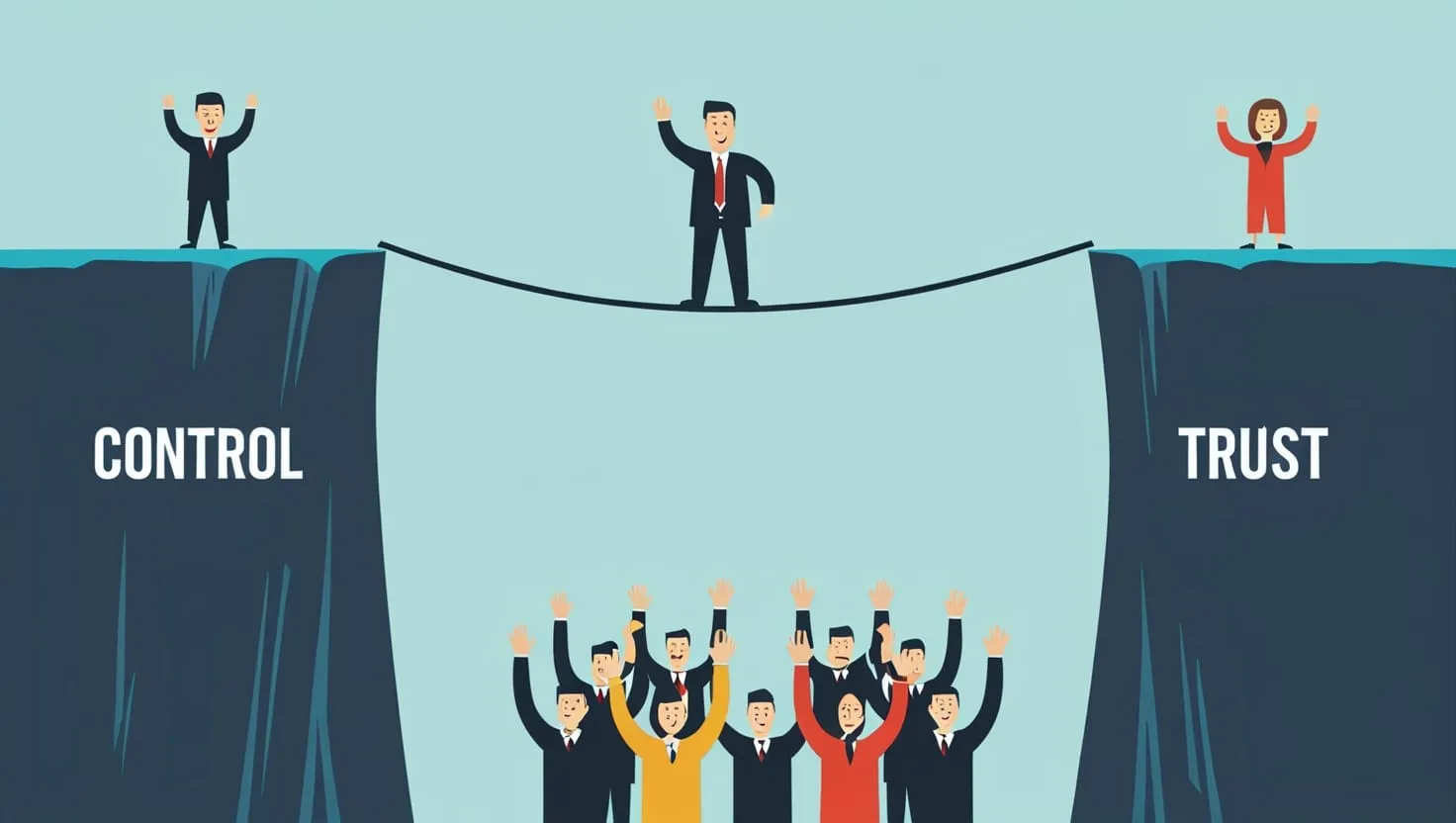In today's unpredictable business world, crisis-proof leadership isn't just a nice-to-have skill - it's absolutely essential. Whether you're steering a company through economic turmoil, navigating a global pandemic, or dealing with internal organizational issues, the ability to lead effectively during tough times can make or break an organization.
So what exactly makes a leader "crisis-proof"? It's not about having all the answers or never making mistakes. Instead, it's about developing a set of skills and attributes that allow you to navigate uncertainty with confidence and inspire others to do the same.
One of the most crucial skills for crisis leadership is complex problem solving. When you're in the thick of a crisis, you're often dealing with a tangled web of interconnected issues that don't have clear-cut solutions. You need to be able to analyze the situation from multiple angles, consider various potential outcomes, and make decisions quickly - often with limited information.
Take the COVID-19 pandemic, for example. Leaders across industries suddenly found themselves facing a slew of complex problems: How do we keep our employees safe? How do we maintain operations with a remote workforce? How do we adapt our business model to a rapidly changing market? There were no easy answers, and the situation was constantly evolving. The leaders who thrived were those who could tackle these complex problems head-on, adapting their approach as new information came to light.
But complex problem solving isn't just about being smart or analytical. It also requires emotional intelligence and the ability to motivate others. You need to be able to communicate your decisions clearly, rally your team around a common goal, and keep morale high even when things look bleak.
Another key attribute of crisis-proof leaders is mental agility. This is the ability to shift between different modes of thinking - to zoom in on immediate priorities and zoom out to see the bigger picture. It's like being able to toggle between a microscope and a telescope, depending on what the situation calls for.
In practice, this might mean focusing intensely on managing a specific crisis one moment, then stepping back to consider how this crisis fits into your long-term business strategy the next. Leaders who get stuck in either extreme - too focused on the details or too caught up in the big picture - often struggle to navigate crises effectively.
Empathy is another crucial trait for crisis leadership. When times are tough, people look to their leaders not just for direction, but for emotional support. They want to know that you understand what they're going through and that you have their best interests at heart.
This doesn't mean you need to be a shoulder to cry on for every employee. But it does mean creating an environment where people feel safe to voice their concerns, share ideas, and take risks. In the healthcare industry, for instance, leaders who fostered this kind of psychological safety during the pandemic saw better outcomes in terms of staff innovation and commitment to change.
Resilience and courage go hand in hand with empathy. Crisis-proof leaders need to be able to stay calm under pressure, make tough decisions, and keep pushing forward even when things look bleak. This isn't about being tough or unemotional - it's about having the inner strength to face challenges head-on and inspire others to do the same.
Think about leaders you admire who've navigated major crises. Chances are, they didn't panic or give up when things got tough. Instead, they likely showed resilience by adapting their approach, learning from setbacks, and maintaining a positive outlook even in the face of adversity.
Decisiveness is another hallmark of effective crisis leadership. When you're in the middle of a crisis, there's often no time for lengthy deliberations or analysis paralysis. You need to be able to make decisions quickly and confidently, even when you don't have all the information you'd like.
But here's the thing - being decisive doesn't mean being a lone wolf or ignoring input from others. In fact, the best crisis leaders balance decisiveness with consultation. They're not afraid to make tough calls, but they also know the value of seeking diverse perspectives and collaborating with their team.
Trust is the glue that holds everything together during a crisis. When people trust their leaders, they're more likely to follow directions, stay committed to the organization, and go above and beyond to help navigate challenges. But trust isn't something you can demand or force - it needs to be earned and nurtured over time.
Crisis-proof leaders build trust by being transparent, communicative, and consistent. They don't sugarcoat bad news or make promises they can't keep. Instead, they're honest about the challenges they're facing, clear about their plans to address them, and open to feedback and questions from their team.
Developing these crisis leadership skills isn't something that happens overnight. It takes time, practice, and often some structured training and development. Many organizations are now incorporating crisis simulations into their leadership development programs, giving future leaders the chance to practice these skills in a low-stakes environment.
These simulations might involve anything from managing a mock PR crisis to navigating a simulated economic downturn. The key is to create scenarios that feel realistic and challenging, pushing participants to use a range of skills and make tough decisions under pressure.
Let's look at a real-world example to see how these skills come together. Imagine you're the CEO of a major airline when a global pandemic hits. Suddenly, travel restrictions are in place, demand for flights has plummeted, and you're facing the possibility of major layoffs or even bankruptcy.
A crisis-proof leader in this situation would need to use all the skills we've discussed. They'd need complex problem solving skills to figure out how to keep the airline afloat while also prioritizing employee and passenger safety. They'd need mental agility to balance immediate concerns (like managing cash flow) with long-term strategic thinking (like how the airline industry might change post-pandemic).
Empathy would be crucial for communicating with scared and stressed employees, while resilience and courage would be needed to make tough decisions and keep pushing forward in the face of unprecedented challenges. The leader would need to be decisive in implementing new policies and procedures, while also consulting with experts and team members to ensure they're making the best possible decisions.
Throughout it all, building and maintaining trust would be paramount. The leader would need to be transparent about the challenges facing the airline, clear about their plans to address these challenges, and open to feedback and ideas from employees at all levels.
It's worth noting that crisis leadership isn't just about what you do - it's also about who you are as a person. The most effective crisis leaders bring their whole selves to the table. They're authentic, vulnerable when appropriate, and able to connect with their team on a human level.
This personal touch can make a huge difference in how people respond to your leadership during a crisis. When your team sees you as a real person - someone who understands their struggles, shares their concerns, and genuinely cares about their wellbeing - they're more likely to trust you and follow your lead.
So how can you develop these crisis leadership skills in yourself or your team? Here are a few suggestions:
Practice complex problem solving by seeking out challenging projects or puzzles. Push yourself to consider multiple angles and potential outcomes.
Work on your mental agility by regularly switching between different types of tasks or projects. Practice zooming in on details and zooming out to see the big picture.
Develop your empathy by actively listening to others and trying to see situations from their perspective. Create opportunities for open, honest communication within your team.
Build resilience by reflecting on past challenges you've overcome and the lessons you've learned. Develop healthy coping mechanisms for stress.
Hone your decision-making skills by setting clear criteria for decisions and practicing making quick calls with limited information.
Foster trust by being consistently honest, transparent, and reliable in your interactions with others.
Remember, becoming a crisis-proof leader is a journey, not a destination. Even the most experienced leaders are constantly learning and adapting their approach. The key is to stay curious, remain open to feedback, and always be willing to grow and improve.
In conclusion, crisis-proof leadership is about more than just weathering the storm - it's about using challenges as opportunities for growth and transformation. By developing skills like complex problem solving, mental agility, empathy, resilience, decisiveness, and trust-building, you can become the kind of leader who not only survives crises but helps your organization thrive in the face of adversity.
So embrace the challenge. See each crisis as a chance to hone your leadership skills and make a real difference. After all, it's in the toughest times that true leaders shine the brightest.






